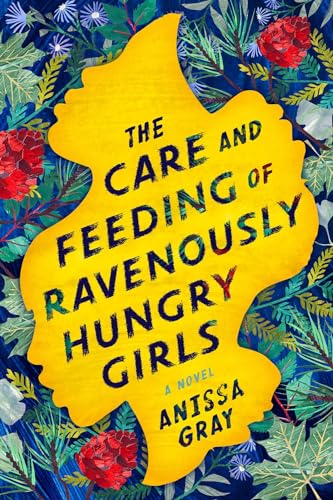The Butler family had a tough upbringing, each member shaped differently by their hard childhood. Oldest sister Althea stepped into the gap created by their mother's death and their angry and volatile father's absences caring for her younger siblings until she moved on to start her own family and a restaurant that was a community touchstone with husband Proctor. Now she and Proctor are in jail, arrested for fraud, guilty of taking donated charity money for themselves and illegally buying food stamps. Someone will have to care for Althea and Proctor's fifteen year old twin daughters, Kim and Baby Vi, who are struggling mightily with their family's fall from grace. Lillian, who has moved into their father's old house and is already taking care of her late ex-husband's elderly mother Nai-Nai, steps up but she is desperate for help from younger sister Viola and is equally as determined that the girls do not end up with brother Joe. Viola ignores the pleas from Lillian as long as she can, grappling as she is with her own demons, a floundering marriage and a recurrence of her bulimia.
The story is told in the first person from each of the sisters' perspectives and interleaved with letters from Proctor to Althea. As the sisters tell the story of what exactly happened that landed Althea and Proctor in jail and even further back in their pasts, it is clear that each of them continues to struggle with the legacy of that past. But as they reckon with their own festering hurts, the twins, Kim and Baby Vi, are floundering as well and the adults in their lives do not know how to best help them. Gray keeps some of the reasons behind the women's suffering vague, writing around the causes for much of the novel, ostensibly to increase tension. Why is Viola's marriage to Eva on the rocks? Why does Lillian have her ex-mother-in-law living with her? Why did Althea and Proctor do what they did? Choosing to use first person narration makes it hard to offer the answers to questions like these for the reader because the narrator already knows the answer but without enough forthcoming information, it's hard for the reader to get completely invested in the characters. The letters from Proctor to Althea help this a bit as he tries to exonerate her for his part in all of it, giving explanations of why he went along with her decisions. The letters are loving but also offer much needed truths and the reasons for everything else eventually come out. The explanations do feel anti-climactic though after being avoided for so long. Each of the women is fully fleshed out but seeing the rest of the characters only through their eyes, especially Kim and Baby Vi, makes these secondary characters less complex even though the escalating situation with the twins drives a lot of the actual action in the novel. Gray is an accomplished writer and the book has some beautiful language in it. This novel of healing and forgiveness, of family and need, of overcoming and hope offered an interesting book club discussion although I ultimately didn't connect with it emotionally as much as I think was intended.







A thoughtful review, thanks for sharing
ReplyDelete